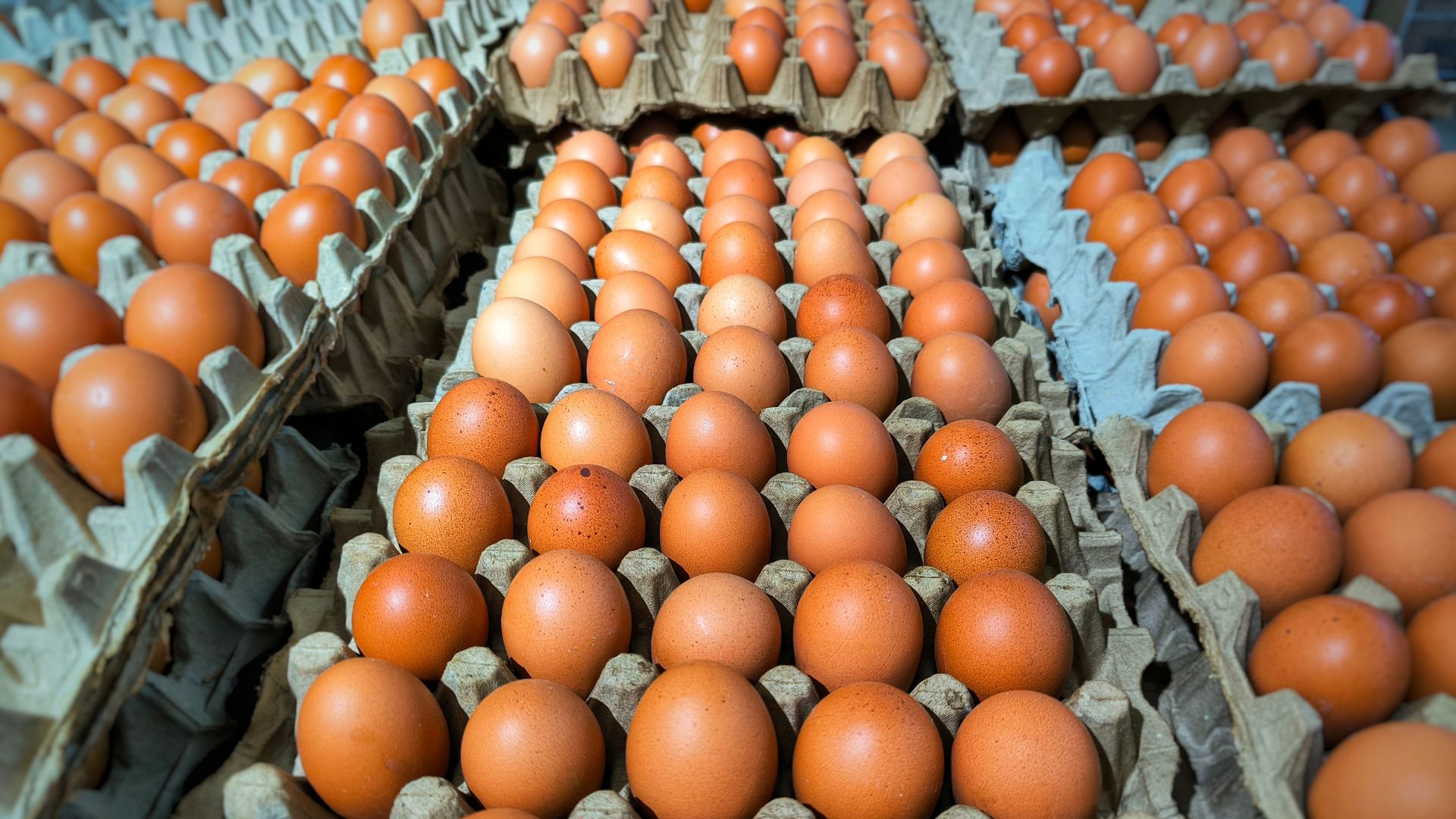
American consumers are finally seeing some relief at the grocery store as egg prices, which have skyrocketed over the past year, begin to trend downward.
The price reduction follows months of high costs driven largely by avian influenza (bird flu), which has forced farmers to cull millions of hens and contributed to egg shortages.
On March 21, when asked about the affordability of eggs for Americans struggling with rising food prices, Brooke Rollins, a key figure in the U.S. government’s response to the egg crisis, explained that prices have been falling for about three weeks.
Elon Musk Called This Financial News ‘Terrifying’
She attributed this decrease to a bold plan released several weeks ago that includes biosecurity measures and the repopulation of chickens affected by the bird flu.
Additionally, Rollins emphasized the importance of reducing regulations that have burdened poultry producers.
“We released a pretty massive, bold plan about three and a half weeks ago including biosecurity measures, repopulating the chickens much more quickly, deregulating, getting government off the back of our poultry producers, importing eggs,” Rollins stated.
“We’ve been bringing in eggs from Turkey and South Korea, we’ve got another couple of countries we talked to yesterday to try to get supplies back up while we repopulate the chickens that were affected by avian bird flu.”
FREE Concealed Carry Gun Laws & Reciprocity Map
The egg shortage crisis has been compounded by the highly pathogenic avian influenza, which forced the culling of millions of hens and severely disrupted the supply chain.
The U.S. Department of Agriculture (USDA) has reported no significant outbreaks of HPAI in nearly two weeks, a sign that the worst of the bird flu crisis may be over, which has helped alleviate some of the supply constraints that led to the soaring prices.
Breitbart News reported on March 13 that the price of eggs has been falling, providing much-needed relief to Americans who have struggled with inflation.
John Carney of Breitbart News noted that the easing of supply constraints, combined with the recent improvement in bird flu outbreaks, has been a key factor in the price reduction.
The return of egg availability comes after months of unprecedented price hikes, which left many Americans scrambling to afford basic groceries.
In response to the ongoing challenges facing American farmers, some have raised concerns about the impact of regulations on poultry production. One official, speaking about the situation, noted that while he opposes excessive regulation, the government must step in to protect American farmers from the effects of the egg shortage. He also stressed the importance of protecting the egg market for U.S. farmers while considering short-term imports to address immediate supply issues.
“Again, you’re talking to somebody that just hates regulations, but well, because it’s here, because of some unreasonable regulations that allowed this to happen, we need to protect the people against this, and then again, be able to protect for eggs,” he stated, calling for safeguards to protect American farmers.
“I saw Brooke Rollins, and I’m a big fan of hers, and we’re getting ready to import hundreds and hundreds of thousands of eggs, and you know, that’s fine, but it needs to be a short period of time, because we have to protect our farmers here.”
The situation with eggs has become a focal point in discussions about U.S. food security and the broader impact of regulatory policies on the agricultural industry.
While imports have helped alleviate the immediate shortages, officials are emphasizing the need for long-term solutions that prioritize the strength and sustainability of American farming.
According to a CBS/YouGov survey conducted in November, a plurality of Americans believed that then President-elect Donald Trump would be able to bring down the cost of food and groceries.
This belief has resurfaced amid the current discussions about food prices, as many look to the government for answers to inflation and supply chain issues.
As the egg shortage subsides, attention will likely turn to ensuring that U.S. farmers are supported and able to rebuild their operations without the burden of excessive regulations.
The ongoing efforts to balance imports and support domestic production will continue to shape the future of the U.S. poultry industry.
American Made Patriotic Apparel – Save 15% with Promo Code MERICA
The opinions expressed by contributors and/or content partners are their own and do not necessarily reflect the views of LifeZette. Contact us for guidelines on submitting your own commentary.

![Cracks Emerge in Democrats' Strategy Linking Egg Prices to Trump [WATCH]](https://www.right2024.com/wp-content/uploads/2025/03/1741761326_Cracks-Emerge-in-Democrats-Strategy-Linking-Egg-Prices-to-Trump-750x375.jpg)



![Trump's Admin Guts Another ‘Rogue Government Agency with Zero Accountability’ [WATCH]](https://www.right2024.com/wp-content/uploads/2025/03/Trumps-Admin-Guts-Another-‘Rogue-Government-Agency-with-Zero-Accountability-350x250.jpg)



![‘We All Owe Him (Elon) a Huge Debt of Gratitude’ [WATCH]](https://www.right2024.com/wp-content/uploads/2025/03/‘We-All-Owe-Him-Elon-a-Huge-Debt-of-Gratitude-350x250.jpg)
![NCAA Champ Salutes President Trump After ‘BIGGEST UPSET IN COLLEGE WRESTLING HISTORY’ [WATCH]](https://www.right2024.com/wp-content/uploads/2025/03/NCAA-Champ-Salutes-President-Trump-After-‘BIGGEST-UPSET-IN-COLLEGE-350x250.jpg)






